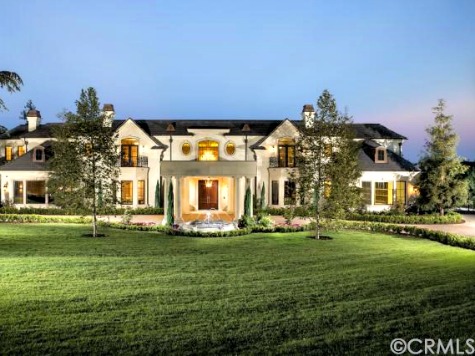
China’s millionaires are relocating to the United States, and the Los Angeles, California suburb of Arcadia is experiencing a highly concentrated version of that, according to a report published by Bloomberg’s Businessweek on Wednesday.
Two-thirds of China’s millionaires have either already emigrated or have plans to do so, notes Businessweek. Of roughly $660 billion that Chinese nationals hold offshore, approximately $22 billion of those funds were spent in the past year alone acquiring U.S. homes.
Arcadia’s Chinese buyers have been purchasing plots of land or homes to tear down in order to build a bigger, newer one. In one case, Businessweek notes, a 17,000 square foot plot of land was going for an asking price of $2 million. Just last year, the wife and 19-year-old daughters of Cheng Qingtao, the CEO of China Huayang Economic & Trade Group, purchased a 9,000-square-foot home with a pool and spa for $6.5 million. The company is one of the first state-owned ventures to be set up by China’s central government, in which Businessweek writes it still owns a majority stake.
The thing that is reportedly drawing buyers from mainland China to Arcadia (population 57,600) is their excellent schools, large lots with lenient building codes, and a place to park their money beyond the reach of the Chinese government. Since the 1930s, a host of Asian immigrants from Taiwan and Hong Kong — which later expanded to other parts of Mainland China — had by 2010 grown Arcadia’s Asian population to nearly 60%.
However, this was not always the case. Arcadia plays host to the Santa Anita Racetrack, which was used to hold approximately 19,000 Japanese Americans during WWII as they awaited relocation into internment camps. Businessweek points out that “in the late 1930s more than 90 percent of the city’s property owners signed agreements, circulated by the Chamber of Commerce, to sell only to white buyers.”
Now, the majority of Arcadia’s Asian inhabitants are in the United States on EB-5 visas – a program that was created by Congress in 1990 to spur investment in the country, Bloomberg notes. These permits are granted by the U.S. government to foreigners who invest in American development projects.
Typically, a Chinese national must invest at least $500,000, Businessweek notes. And this year, in an unprecedented move, 85% of the annual allocation of 10,000 visas before year’s end were overwhelmingly given to Chinese nationals.
Many of Arcadia’s newest buyers do not even speak English. An owner of one construction company that has only Asian clients said, “Obviously, if your house isn’t feng shui-friendly, it’s like we’re not even going to have a conversation.”
Despite all the help Chinese investments have contributed to turning around Arcadia’s once-ailing real estate market, homeowners in the area feel torn.
They are happy about the rising property values of their homes. But they are concerned about repercussions that could occur if the influx of Chinese cash were to suddenly come to an end. Depending on stricter regulations from the Chinese government, the expatriation (release) of funds to the United States could make it difficult for Chinese money to leave the country.
Recent protests in Hong Kong have drawn greater attention to this issue, with questions swirling as to whether China’s communist government will crack down on nationals who wish to seek refuge and start a new life in places like California by administering stricter financial regulations.
One homeowner told Businessweek that he wanted to wait until his last son completed college before selling his home, but wasn’t sure if his “five-year plan” would withstand the boom Arcadia is currently experiencing. “If a communist government starts putting the kibosh, isn’t it more incentive to get money out of the country?” he asked.

COMMENTS
Please let us know if you're having issues with commenting.